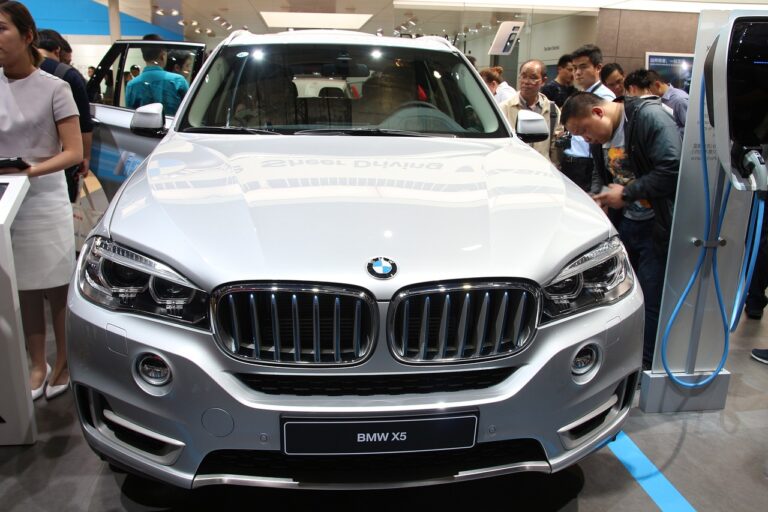The Evolution of Car Battery Manufacturing: From Lead-Acid to Lithium-Ion
diamondexch sign up, sky 99 exch, reddy anna book club:Car batteries have been an essential component of automobiles for decades, providing the power needed to start the engine and run various electrical systems within the vehicle. Over time, the manufacturing process for car batteries has evolved significantly, transitioning from the traditional lead-acid batteries to the more advanced lithium-ion batteries. In this article, we will delve into the evolution of car battery manufacturing, exploring the differences between lead-acid and lithium-ion batteries, as well as the advantages and challenges associated with each type.
The Rise of Lead-Acid Batteries
Lead-acid batteries have been the predominant type of car battery for many years, known for their reliability and affordability. These batteries are composed of lead plates immersed in a sulfuric acid electrolyte, which undergo a chemical reaction to produce electricity. Lead-acid batteries are relatively simple to manufacture and have been the go-to choice for automotive applications due to their ability to provide high starting power.
However, lead-acid batteries have some notable drawbacks. They are heavy and bulky, which can affect the overall performance and fuel efficiency of a vehicle. Additionally, lead-acid batteries have a limited lifespan and require regular maintenance to ensure optimal performance. As automotive technology has advanced, the need for more efficient and lightweight energy storage solutions has become increasingly apparent, leading to the development of lithium-ion batteries for automotive applications.
The Emergence of Lithium-Ion Batteries
Lithium-ion batteries have revolutionized the automotive industry, offering a more efficient and environmentally friendly alternative to traditional lead-acid batteries. These batteries use lithium compounds as the electrolyte and typically have a higher energy density than lead-acid batteries, enabling them to store more energy in a smaller and lighter package.
One of the key advantages of lithium-ion batteries is their longer lifespan and higher cycle efficiency compared to lead-acid batteries. This means that lithium-ion batteries can withstand more charge-discharge cycles without losing their capacity, making them a more durable and cost-effective option in the long run. Additionally, lithium-ion batteries are more environmentally friendly as they do not contain toxic lead and can be recycled more easily.
Despite their numerous benefits, lithium-ion batteries also have some challenges that need to be addressed. One major concern is the potential for thermal runaway, where the battery overheats and catches fire due to internal short circuits or external factors. Manufacturers are continuously working to improve the safety and reliability of lithium-ion batteries through advanced battery management systems and thermal control mechanisms.
Heading 1: The Advantages of Lithium-Ion Batteries
Heading 2: The Challenges of Lithium-Ion Batteries
Heading 3: The Future of Car Battery Manufacturing
Heading 1: The Advantages of Lithium-Ion Batteries
1. Higher Energy Density: Lithium-ion batteries have a higher energy density than lead-acid batteries, allowing them to store more energy in a smaller and lighter package. This results in improved performance and efficiency for electric vehicles.
2. Longer Lifespan: Lithium-ion batteries have a longer lifespan and higher cycle efficiency compared to lead-acid batteries, reducing the need for frequent replacements and maintenance.
3. Faster Charging Times: Lithium-ion batteries can be charged more quickly than lead-acid batteries, providing greater convenience for drivers on the go.
4. Environmentally Friendly: Lithium-ion batteries are more environmentally friendly as they do not contain toxic lead and can be recycled more easily.
Heading 2: The Challenges of Lithium-Ion Batteries
1. Thermal Runaway: Lithium-ion batteries are susceptible to thermal runaway, where the battery overheats and catches fire due to internal short circuits or external factors. This poses a safety risk that manufacturers are actively addressing.
2. Cost: Lithium-ion batteries are still more expensive to manufacture than lead-acid batteries, which can affect the overall cost of electric vehicles and other applications.
3. Resource Constraints: Lithium-ion batteries rely on scarce natural resources such as lithium and cobalt, leading to concerns about the sustainability of battery production.
Heading 3: The Future of Car Battery Manufacturing
The future of car battery manufacturing is undoubtedly heading towards lithium-ion technology, as automakers and battery manufacturers continue to invest in research and development to improve the performance, safety, and affordability of lithium-ion batteries. Advancements in battery chemistry, manufacturing processes, and recycling technologies are driving the transition towards a more sustainable and efficient energy storage solution for automotive applications.
One exciting development on the horizon is solid-state lithium-ion batteries, which offer even higher energy density, faster charging times, and improved safety compared to traditional liquid electrolyte batteries. Solid-state batteries are still in the early stages of commercialization, but they hold the potential to revolutionize the electric vehicle industry and other energy storage applications in the coming years.
In conclusion, the evolution of car battery manufacturing from lead-acid to lithium-ion represents a significant shift towards more efficient, durable, and environmentally friendly energy storage solutions for automotive applications. While lithium-ion batteries come with their own set of challenges, ongoing research and innovation are paving the way for a sustainable and electrified future of transportation.
FAQs:
Q: Are lithium-ion batteries safe for use in cars?
A: Yes, lithium-ion batteries are safe for use in cars when properly manufactured, installed, and maintained. Manufacturers implement stringent safety measures to prevent issues like thermal runaway and ensure the reliable performance of lithium-ion batteries in automotive applications.
Q: How long do lithium-ion batteries last in a car?
A: The lifespan of a lithium-ion battery in a car can vary depending on factors such as usage patterns, charging habits, and environmental conditions. On average, a lithium-ion battery in an electric vehicle can last anywhere from 8 to 15 years before needing replacement.
Q: Can lithium-ion batteries be recycled?
A: Yes, lithium-ion batteries can be recycled to recover valuable materials like lithium, cobalt, and nickel. Recycling helps reduce the environmental impact of battery production and disposal, making lithium-ion batteries a more sustainable energy storage solution for the future.







